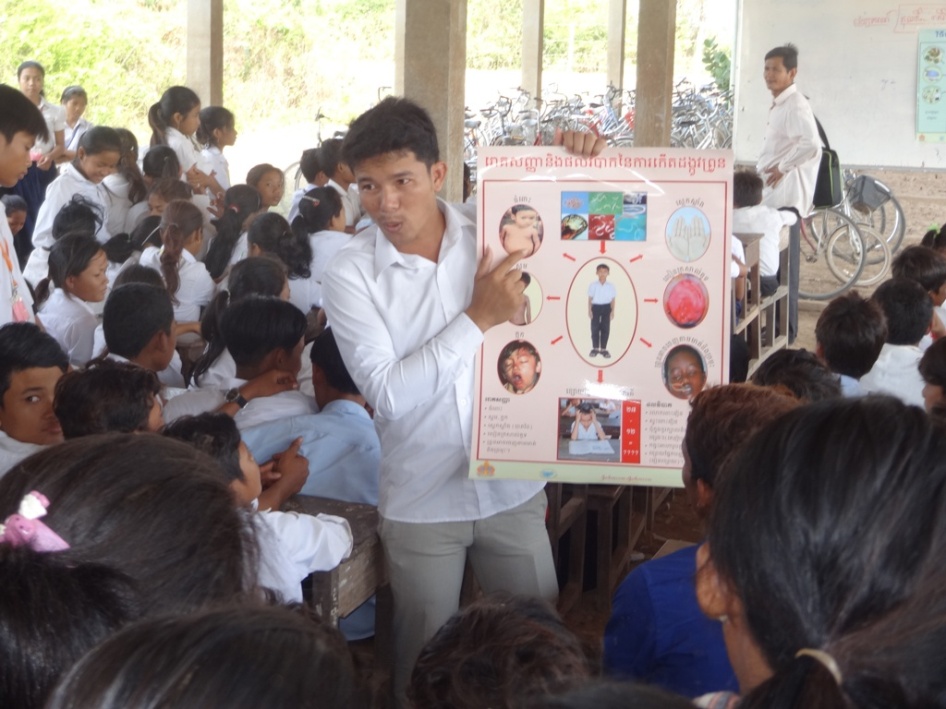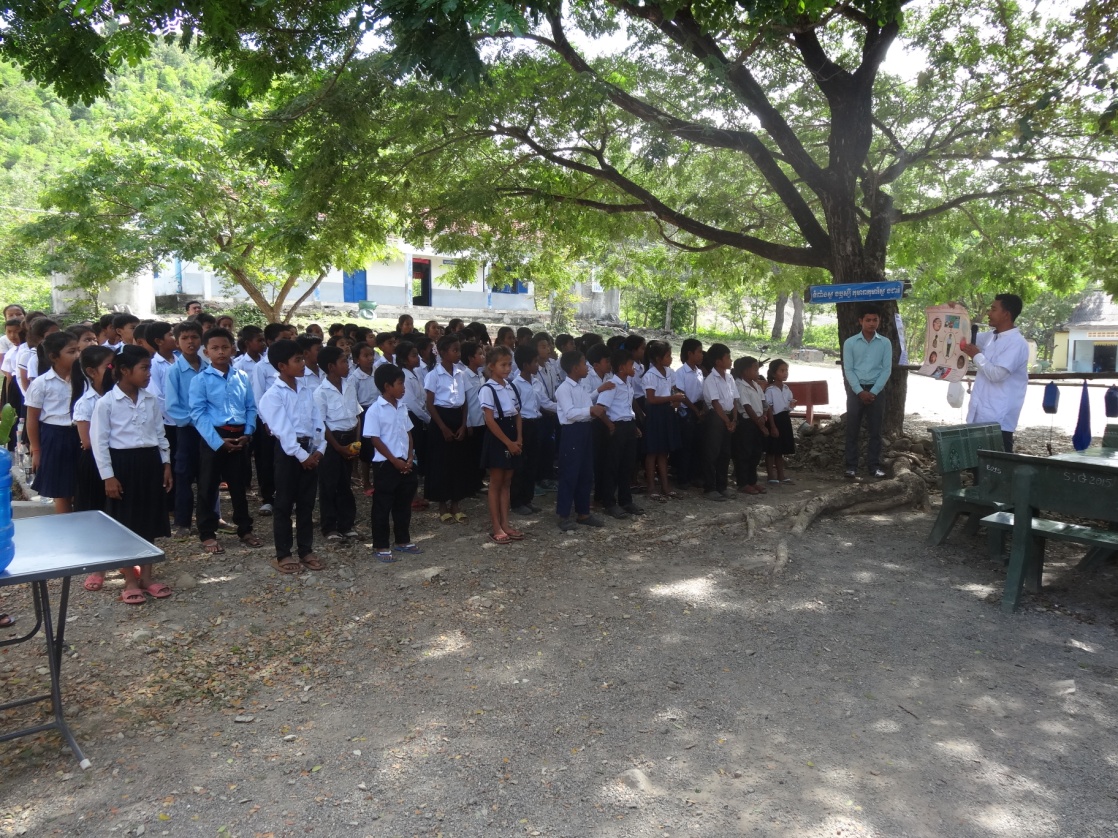Under the USDA-funded McGovern Dole Food for Education (FFE) Program, IRD/Blumont worked in collaboration with both the Ministry of Health (MoH), and Ministry of Education Youth and Sports (MoEYS), as well as partner schools and health centers, to distribute de-worming medication to students at 132 FFE schools.
As identified in the MoEYS’ Department of School Health policy on control and prevention of soil-transmitted parasitic worms, only a small number of schools had consistent access to de-worming medications, an issue that was only exacerbated by parents who, skeptical of the medication’s benefits, often prevented their children from taking the de-worming medicine.
To provide some context, a parasitological survey for intestinal parasitic infection conducted in six schools along the Tonle Sap river of Kampong Chhnang province found that 66.1% of the 576 students tested were infected by intestinal parasites. Ascaris and hookworm were highly prevalent as well, with infection rates of 32.5% and 24.3% respectively. In order to address the apparent void in treatment resources, IRD/Blumont enhanced its implementation of de-worming activities by importing 35,000 doses of mebendazole to cover the schools that did not have access to the pills in 2013 and 2014. In order to positively reinforce the distribution of medicine, IRD/Blumont provided extensive guidance to the partner schools on how to obtain the required quantities of medicine for their students on a bi-annual basis. Furthermore, in order to assuage the fears of skeptical parents, IRD/Blumont collaborated with regional health centers to provide training awareness on soil-transmitted helminthes (parasites) to all 31,793 schoolchildren as a preliminary measure to actual medication distribution. Given the negative health effects associated with Soil-Transmitted Helminthes (STH) in children – anemia, delayed intellectual development, reduced school attendance and performance, and in some cases, death – the de-worming activities undertaken by IRD/Blumont and its collaborators are an essential component of student health and well-being.

To expand on the essential activity components, IRD/Blumont’s educational session assisted children in developing their knowledge, attitudes and awareness towards this public health concern. The lessons also gave the students an understanding of types of worms, life cycles, signs and complications of worm infection, as well as prevention strategies and resource centers for anti-worm treatment. Additionally, IRD/Blumont conducted annual educational sessions at all target schools through youth-led drama/puppet shows focused on hygiene, including: positive personal hygiene behaviors, the importance of wearing shoes, proper latrine use, hand washing with soap, drinking clean water, causes of diarrhea, and general habits to ensure well-being.
Treatment of intestinal worms, improved hygiene practice, and access to sanitary facilities and clean water sources were integrated into the Food for Education Program as essential components to facilitating STH prevention and treatment, and improving quality of life and development for children throughout Cambodia. In light of this, IRD/Blumont committed to ensuring all 132 FFE schools received appropriate doses of de-worming medication, as well as improved clean water sources, functional latrines separated by gender, and sanitary hand washing stations. Under the current FFE project, 164 water systems (20 bio-sand filters, 65 rain water harvesting systems, 79 tube wells), 364 latrines and 308 tippy-tap hand-washing station were provided to 132 schools benefiting a total of 31,793 schoolchildren and 1,010 teachers. Moreover, IRD/Blumont distributed soap for appropriate hand washing practices, cleaning supplies for latrines, and shoes to prevent soil-transmitted parasites twice every school year.

As a result of these activities, all 132 FFE beneficiary schools are currently able to obtain de-worming pills from the MoH to ensure sufficient quantities of mebendazole doses are available for all students. The future of such efforts are contingent upon continued funding and support for the interventions and essential services provided by NGOs, national government entities and local institutions alike.
RELATED READING:
Maternal Health and Nutrition Education for Adolescent Girls
Feeding Program Improves Student Retention in Cambodia
Shoes Smooth the Road to Education



